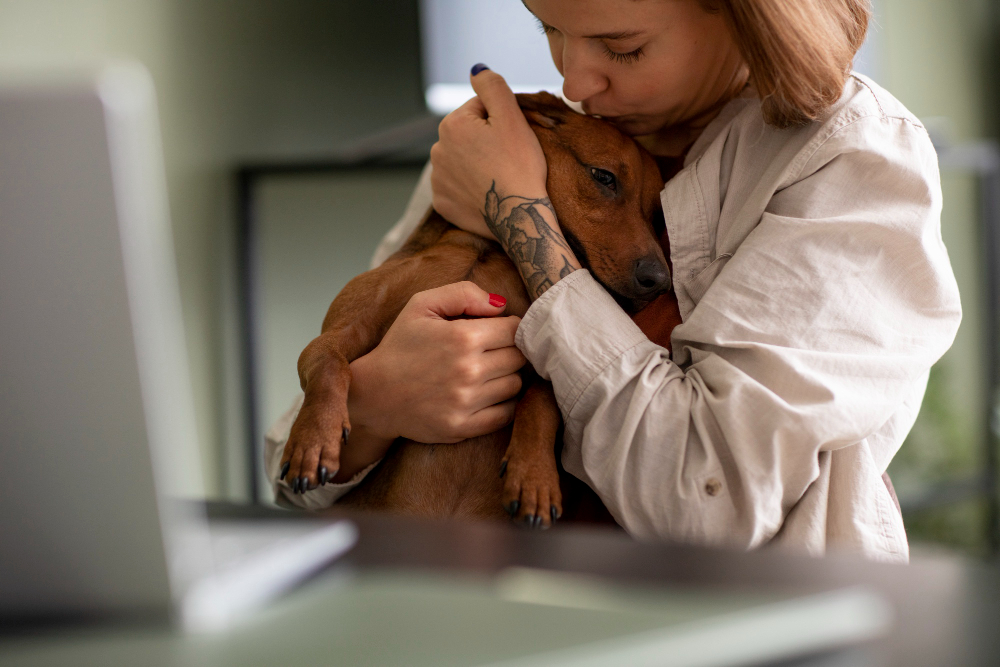Questions to Ask Your Vet Before Considering In-Home Euthanasia

Questions to Ask Your Vet Before Considering In-Home Euthanasia

Deciding to say goodbye to a beloved pet is one of the hardest choices any pet owner can face. When that time comes, many families opt for in-home euthanasia, a compassionate way to ensure their furry friends feel comfort and peace in their final moments. This choice provides pets the familiarity of home, surrounded by those who love them most.
If you're considering in-home euthanasia in Reno, NV, it’s important to have an open and honest conversation with your veterinarian to fully understand what to expect. This blog will guide you through the critical questions to ask your vet, so you can make the most informed and loving decision for your pet.
Why Consider In-Home Euthanasia?
Unlike a clinical setting, in-home euthanasia gives pets the chance to pass away in a space they know and feel comfortable in. It eliminates the stress of travel for both pets and owners, and it provides a calm and private atmosphere for saying goodbye.
However, this decision requires thoughtful planning. It’s vital to discuss your pet’s specific needs with your veterinarian to ensure this choice is the best option.
Questions to Ask Your Vet About the Process
1. What Are the Signs That It’s Time to Consider Euthanasia?
One of the most difficult parts of pet ownership is determining when it’s time to consider euthanasia. Ask your vet to explain the signs of declining quality of life, which often include persistent pain, difficulty eating or drinking, loss of mobility, or frequent distress.
Vets may use tools like the H.A.P.P.I.E.R. Scale (Happiness, Appetite, Pain, Personal Hygiene, Interest, Environment, and Responsiveness) to evaluate your pet’s overall well-being.
2. How Does the Procedure Work?
Understanding the procedure can help ease your anxiety. Discuss the step-by-step process of in-home euthanasia with your vet. Generally, it involves the following stages:
- Initial Sedation: Your pet is gently sedated to relax and ease any nervousness.
- Administration of Euthanasia Solution: A second injection painlessly stops the heart.
- Post-Procedure Care: The vet will guide you through aftercare options, including cremation or burial.
3. What Can I Do to Prepare My Pet and Home?
Creating a comfortable and peaceful environment for your pet is crucial. Ask your vet about tips on:
- Choosing your pet’s favorite space, such as a sunny corner or their bed.
- Bringing in comforting items like toys or blankets.
- Deciding who should be present during the procedure.
You may also want to know if your vet brings their own equipment or if you need to provide anything for the process.
4. How Can I Ensure My Pet Experiences No Pain?
A concern many pet owners have is ensuring the procedure is pain-free. Reassure yourself by asking about the medications used and how they work. Most vets use medications specifically designed to keep pets calm and pain-free throughout the process.
Don’t hesitate to express this concern; your vet understands how important it is to ensure your pet’s comfort.
5. What Support Can You Provide for Me and My Family?
Losing a pet is incredibly emotional, and many vets offer resources to support grieving families. Ask if they provide:
- Counseling or grief support resources.
- Keepsakes or memorial services, such as paw prints or cremation urns.
- Guidance on how to discuss the loss with children or other pets in the household.
6. What Are the Logistics for Aftercare?
Understanding the aftercare process in advance can help you focus on your pet during their final moments.
- Cremation Options: Will your vet handle this for you, or do you need to contact a pet crematorium?
- Burial Guidance: If you wish to bury your pet at home, your vet may have advice or know of local regulations.
- Keepsakes: Some families request a paw print or fur clipping as a memory. Ask your vet about available keepsake options.
7. Can You Recommend Any Local Services in Reno, NV?
Each city has its own set of pet care providers, and your vet may collaborate with local services for euthanasia or aftercare. Ask for recommendations within Reno, NV, especially for cremation services, memorial items, or grief counseling resources.
Rover Veterinary Care, for example, is available to help discuss the logistics and provide free estimates for any requests related to final pet care arrangements.
Additional Considerations
Cost of the Service
The cost of in-home euthanasia can vary depending on the vet, the medications used, and extra services like cremation. Request a breakdown of the costs in advance so you can plan accordingly.
Timing + Scheduling
Ask your vet when they would be available to perform the procedure, as many specialists book up quickly. For pets in advanced stages of illness, timely scheduling might be crucial.
Emergency Services
What if your pet’s condition deteriorates suddenly? Ask if the vet provides emergency euthanasia services or if they can recommend someone who does.
Comforting Your Pet and Family
Your veterinarian will likely have tips on how to provide emotional support to your pet during their final moments. Speak gently, use calming touches, and remain present.
It’s also okay to address your own feelings. Losing a pet is a deeply personal experience, and there’s no “right” or “wrong” way to say goodbye.
Make an Empowered Decision
Choosing in-home euthanasia is a loving and humane way to say goodbye. By asking these thoughtful questions, you can ensure your pet’s final moments are as peaceful and dignified as possible.
If you're considering in-home euthanasia in Reno, NV, reach out to Rover Veterinary Care today. Our compassionate team is here to answer your questions and provide free estimates to make the process easier for you.
